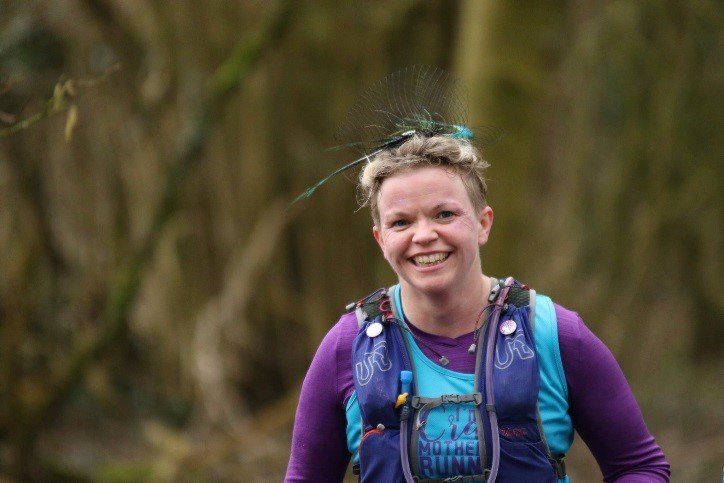Could I run a marathon?
I know many of you are well into your training and fundraising for the Bath Half now. For some of you it will be your first half marathon. For others it’s one in a list of many. There’s no doubt about it, a half marathon distance (13.1 miles) is a challenge, but it’s a challenge which is increasingly seen as appealing and accessible to the average runner. The statistics back this up with an estimated 45% of runners having done a half marathon. That percentage is much, much smaller for full marathon distance. A 2012 survey in the US found that between 0.5 and 1% of the population had ever run a marathon.
I don’t think that’s surprising. Half training can be slotted into most people’s lives without too much trouble. In the final couple of months before the big race you’ll need to put in some longer training runs with the longest being something like 10 miles, but for a regular runner it’s not too daunting – in fact having an excuse to disappear for a couple of hours on a Sunday morning is rather nice.
Training for a marathon will involve running for 4, perhaps even 5 hours on your longest runs, and that can be harder to shoe-horn into normal life. To do the race justice you’ll need to invest time and effort in interval training and cross training. To reduce your risk of injury you’ll need to take more seriously your recovery strategy and your nutrition. A half marathon can be run on water and a few jelly beans; not so a marathon.
So taking all that into account you’d be right to think of marathons as daunting. I certainly did. I remember finishing my first Bath Half in 2015, aching and exhausted, and my always-pragmatic husband said “just think… if that was a marathon you’d have to do the whole thing again”. I laughed and said, both to him and to myself, “that’s NEVER going to happen”. But somehow, two years later, I did run a marathon. And I enjoyed it so much that I did three more in the following 12 months.
The marathon is not a challenge you should underestimate, but it is one which I would encourage anyone who loves running to embrace if they have the opportunity. Here are my tips for preparing for your first marathon.
- Plan ahead. Give yourself plenty of time to build up gradually to your first marathon. Block out time in your diary and trim back your other commitments for the duration of your training. This is a process which needs investment. If fitting in your long runs is going to be the hardest part, you could consider splitting your run so you do half in the evening and half the following morning;
- Get a training plan – that could be a bespoke plan from a coach or a generic one that you tweak yourself to fit your available time. Follow it as closely as you can;
- Cross train. Doing other exercise on top of your running is very important. If you don’t think you can fit it in, replace one running session a week with strength training, gym work, cycling or swimming – yes, it really is that important;
- Take your recovery as seriously as you take your training. Schedule in an occasional sports massage, regular yoga or deep stretching sessions, and a lower intensity week from time to time. And get as much sleep as you can!
- Try out a range of different nutrition during your training to find what works for you. Gels, blocks, drinks or “real” food – what suits one runner won’t suit another;
- Make hydration a habit. Every cell in your body needs water – from the connections in your brain to your hard-working joints. You’ll function better if you get into the habit of hydrating well every day;
- Walking can be part of your race plan. Jeff Galloway is an Olympian and coach who advocates a run/walk interval approach to the marathon (and other distances). “Jeffing” is alternating running intervals of a few minutes with one minute recovery walks. If you’re concerned that you will need to walk at some point then consider using this strategy for the whole race;
- Give some thought to your mental preparation. Your physical training will get you to the start line, but it’s mental strength that will carry you over the finish. Personally I always count the miles up to 13 and then back down again so I never think about the big-numbered miles. I’ve heard of runners who will dedicate each mile to someone who has supported them on their marathon journey. When you reach race day make a conscious effort to put the highs and lows of your training behind you;
- If you’re likely to be towards the back of the field then embrace the fact that you’ll be amongst the more interesting characters. The highlight of my second marathon was meeting Danny the Legend: a septuagenarian with more than 600 marathons under his belt. Be friendly to your fellow runners and you’ll be rewarded with support through the tougher bits;
- Think of the marathon as a race of two halves. Most training plans will have you running 20 miles on your longest run so the first 20 miles will be familiar to you. The final 6 is uncharted territory. Some runners will stop their watch at the 20 mile marker, restart it and treat this as a separate 10km run! The final part of the marathon is the time to dig deep, to remember why you’re doing it and to celebrate the fact that every step is taking you further than you’ve ever gone before.
Good luck and enjoy it!










